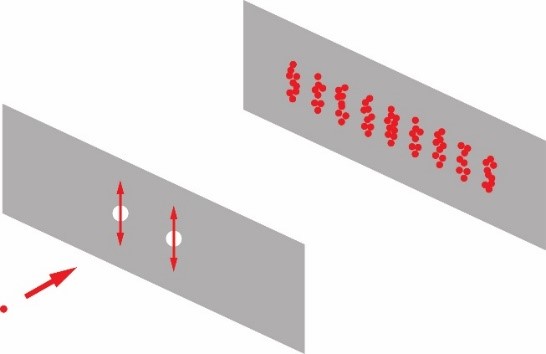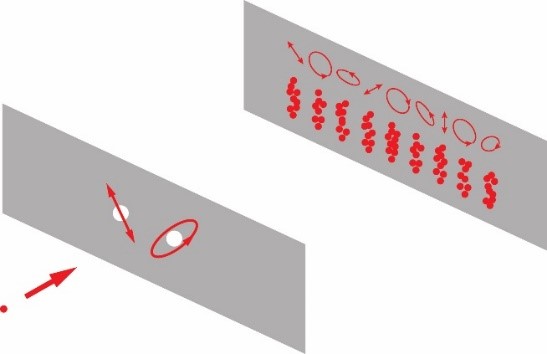Quantum photonics
We are constantly looking for talented and highly motivated applicants to join our research on quantum photonics. Contact person Asst. Prof. Andreas Norrman.
The principle of complementarity, stating the quantum systems share mutually exclusive characteristics, has had a major significance for the foundations of physics and even a profound impact on the interpretation of the fundamental nature of reality. One of the most recognized manifestations of such complementarity is wave-particle duality, which restricts the coexistence of interferometric ‘which-path information’ (particle behavior) and fringe visibility (wave behavior) of quantum objects. Photons, in particular, may exhibit interference in terms of intensity fringes and/or in terms of polarization-state fringes, the latter being a distinctive quality of vectorial light fields that has no correspondence in scalar light interferometry. In our research we explore the implications of this unique vector-light property and more generally the role of photon polarization in quantum complementarity contexts, revealing new foundational aspects about the dual wave-particle character of light.


Left: Scalar light. Right: Vector light
Contact persons:
Asst. Prof. Andreas Norrman
Prof. Tero Setälä
Prof. Ari T. Friberg
- A. Norrman, K. Blomstedt, T. Setälä, and A. T. Friberg, “Complementarity and polarization modulation in photon interference”, Phys. Rev. Lett. 119, 040401 (2017).
- A. Norrman, A. T. Friberg, and G. Leuchs, “Vector-light quantum complementarity and the degree of polarization”, Optica 7, 93 (2020).